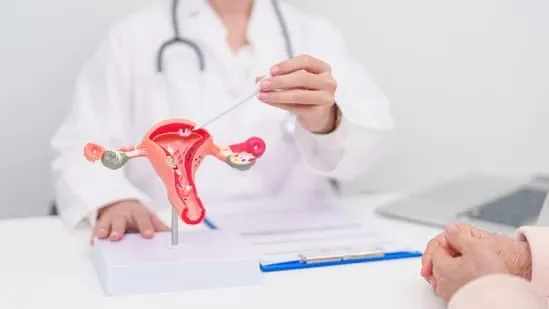The worst part? Not all fibroids cause symptoms, and many women do not even know they have them until they face fertility issues or go through routine scans. So, can fibroids really affect your chances of conceiving? The answer is not a simple yes or no. It actually depends on where they are, how big they are, and how they are affecting your body.
What are fibroids?
Fibroids are non-cancerous growths that develop in or around the uterus. Medically known as leiomyomas, they are made up of muscle and fibrous tissue. These growths can vary in size, from so small they go unnoticed to large enough to cause discomfort. "Many women do not even realize they have fibroids until they start experiencing symptoms like heavy menstrual bleeding, pelvic pain, or a constant feeling of pressure in the lower abdomen," explains Dr Apurva Satish Amarnath, fertility specialist, Nova IVF Fertility, Bangalore.
How common are fibroids?
Uterine leiomyomas, or fibroids, are the most common benign tumors of the uterus and the leading pelvic tumors in women. They affect about 20-25 percent of women in their reproductive years. While the exact cause is not known, fibroids tend to develop more frequently with age, particularly during a woman's 30s and 40s, and up until menopause. After menopause, fibroids usually shrink, as per the Office on Women's Health.
Despite being so common, awareness about their impact, especially on fertility, remains quite low. Since it is not something openly discussed, many women struggle to connect the dots between their symptoms and fibroids, which can delay diagnosis and proper treatment.
Fibroids and fertility problems: Is there any link?
Not all fibroids mess with fertility. But sometimes, they do. "It really depends on the size, number, and, most importantly, the location of the fibroids. Most fibroids are found in or around the body of the uterus and occasionally in the cervix," says Dr Amarnath. Based on where they grow, there are three main types: submucosal, intramural, and subserosal.
1.
Submucosal fibroids, which grow into the uterine cavity, are the ones most likely to interfere with fertility. They can distort the inner lining of the uterus, making it harder for an embryo to implant.
2.
Intramural fibroids grow within the uterine wall and may press on the fallopian tubes or disrupt blood flow, both of which can make conception tricky.
3.
Subserosal fibroids grow on the outside of the uterus. They usually do not cause fertility issues but can still lead to discomfort like bloating or pelvic pain.
According to the American Society for Reproductive Medicine, fibroids that are located inside the uterine cavity or are very large (over 6 cm) within the uterine wall are more likely to impact fertility. Some fibroids can also affect how the uterus contracts or even change the hormonal balance. In some cases, they may even raise the risk of miscarriage.
How do fibroids cause infertility?
Fibroids can affect fertility in several ways. Here's how:
- They may alter the shape of the cervix, limiting the number of sperm that enter the uterus. If fibroids block the fallopian tubes, they can prevent eggs from meeting sperm or reaching the uterus.
- They may also change the size or shape of the uterine lining, making it harder for an embryo to implant.
- Fibroids can reduce blood flow to the uterine cavity, which can affect both implantation and embryo development.
Should you get checked?
If you have been trying to get pregnant for a while and nothing is happening, it is a good idea to get checked for fibroids. Many fibroids are diagnosed during routine scans, especially during fertility evaluations or after a miscarriage. According to Dr Amarnath, you might also want to consider testing if you have noticed:
- Really heavy periods
- Painful cramping that does not feel normal
- Constant pressure low in the belly
- Peeing more than usual
- Constipation
- Trouble getting pregnant despite regular cycles
An ultrasound is usually enough to detect fibroids. But if things are not clear, your doctor might recommend further tests like an MRI or hysteroscopy for a closer look.
